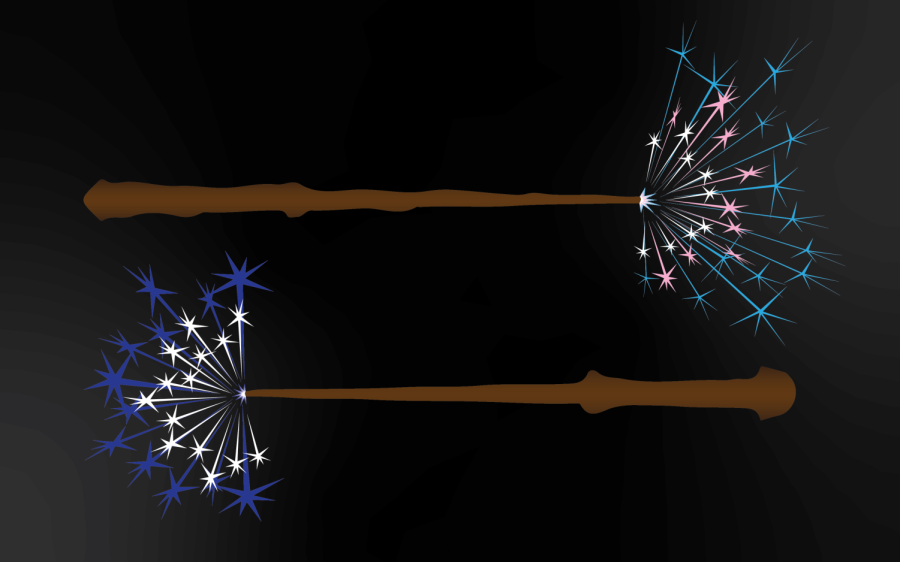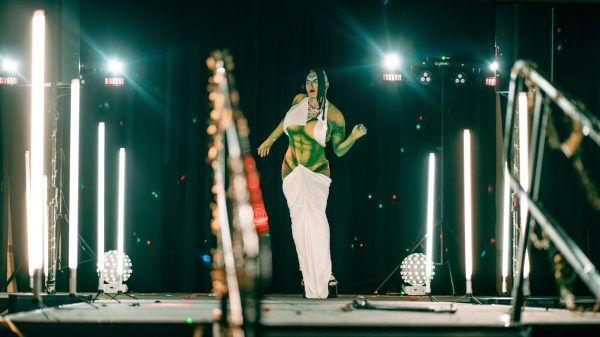“Hogwarts Legacy” Divides Gamers: Ethics of Supporting Problematic Creators
“It’s not levio-SAH, it’s levi—oh no.”
This thought was shared by fans and critics of J.K. Rowling’s renowned “Harry Potter” series after the launch of Avalanche Studios’ “Hogwarts Legacy,” Feb. 10. With a record player count of 783,277 within the first 24 hours and outstanding reviews on IGN and Video Games Chronicle, the game has surpassed players’ expectations and promotes a world where players are the center of their own adventure. But in response to Rowling’s past transphobic comments and anti-semitic themes found within the game, many gamers have boycotted the game and ask others to follow suit.
Released on XBox X/S, PS5 and Windows, the action role-playing game provides customizable options for players and the ability to explore the open-world environment of Hogwarts School of Witchcraft and Wizardry. Along with attending classes, players can learn spells, tame various beasts and complete quests and combat missions. Although there were criticisms about the invariability in bosses and bland characterization, players, including a revieer at Imagine Games Network (IGN), say they enjoy the gameplay mechanics and immersive environment of “Hogwarts Legacy,” claiming it is the most faithful game adaptation of the original book series.
The discourse regarding “Hogwarts Legacy” does not lie within the game itself, but with the series creator J.K. Rowling. Rowling began sharing her opinions about the transgender community on Twitter in June 2020. In response to her comments, many LGBTQ+ activists called her a TERF, or trans-exclusionary radical feminist, for her views on trans women and gender-affirming care. During “The Witch Trials of J.K. Rowling” podcast, she claimed her comments were misunderstood, saying although she never intended to upset anyone, she did not regret “getting off her pedestal.”
Sirona Ryan, a trans woman who owns the Three Broomsticks restaurant in the game, is one character that raised eyebrows within the LGBTQ+ community. Although the inclusion of Sirona was supposed to serve as the series’ first transgender character, Avalanche Studios has not made any indication about their support for the trans community, according to Gaming Intel.
Another allegedly problematic element within the game is the main storyline, where players have to battle Ranrok, the leader of a goblin rebellion. Several anti-semitic stereotypes displayed by Ranrok and other goblins have been identified. The goblins are one of many discriminated species in the series and are the source of many rebellions, including one that correlates with the real-life 1612 Fettmilch Uprising that led to the relocation and murder of thousands of Jewish people. One artifact called “a goblin horn” shares many similarities with the shofar, a Jewish musical instrument typically played during Rosh Hashanah.
For Seattle University English Associate Professor Susan Meyers and Fourth-year Political Science Major Liam Jenness, it is apparent that Rowling’s bigotry seeped into not only the original series, but also unaffiliated works like “Hogwarts Legacy.” As the director of Seattle U’s creative writing program, Meyers believes any creative work requires diverse editors to ensure the foundation of a creator’s work is not built on prejudice.
“It is important to look back at the books and understand how implicit layers of bias can be harmful to some readers and for us to be thinking collectively about how we are engaging as consumers of text, film etc. when we think about what we are endorsing,” Meyers said.
Although Avalanche Studios attempted to disassociate themselves from J.K. Rowling, saying she had no involvement in “Hogwarts Legacy,” Forbes reports she is likely going to receive royalties from the game’s license. Christopher Paul, Seattle U communication and media professor, explains while these boycotts were needed to discuss these biases within the “Harry Potter” universe, these creative decisions are ultimately J.K. Rowling’s to make. It is up to the fans on whether or not they want to continue expressing their interests.
“It’s her world and not ours, and I think there are certain things fans can do to recraft it, whether through fanfiction or other elements,” Paul said. “This happens sometimes when you get too invested in a corporate property, and one needs to reckon with that if you still want to celebrate Harry Potter.”
Jenness does not plan to buy “Hogwarts Legacy” because they do not want to support a creator who spreads misconceptions towards people in their community. However, they do not hold resentment towards fans as they understand why fans find solace and entertainment from the work.
“If you are a Harry Potter fan, be a Harry Potter fan. You don’t have to engage with the works to remain a fan,” Jenness says.
Although “Hogwarts Legacy” continues to receive critical acclaim from the gaming community, it serves a lesson on how a creator’s biases can, if left unchecked, lead to harmful depictions.










